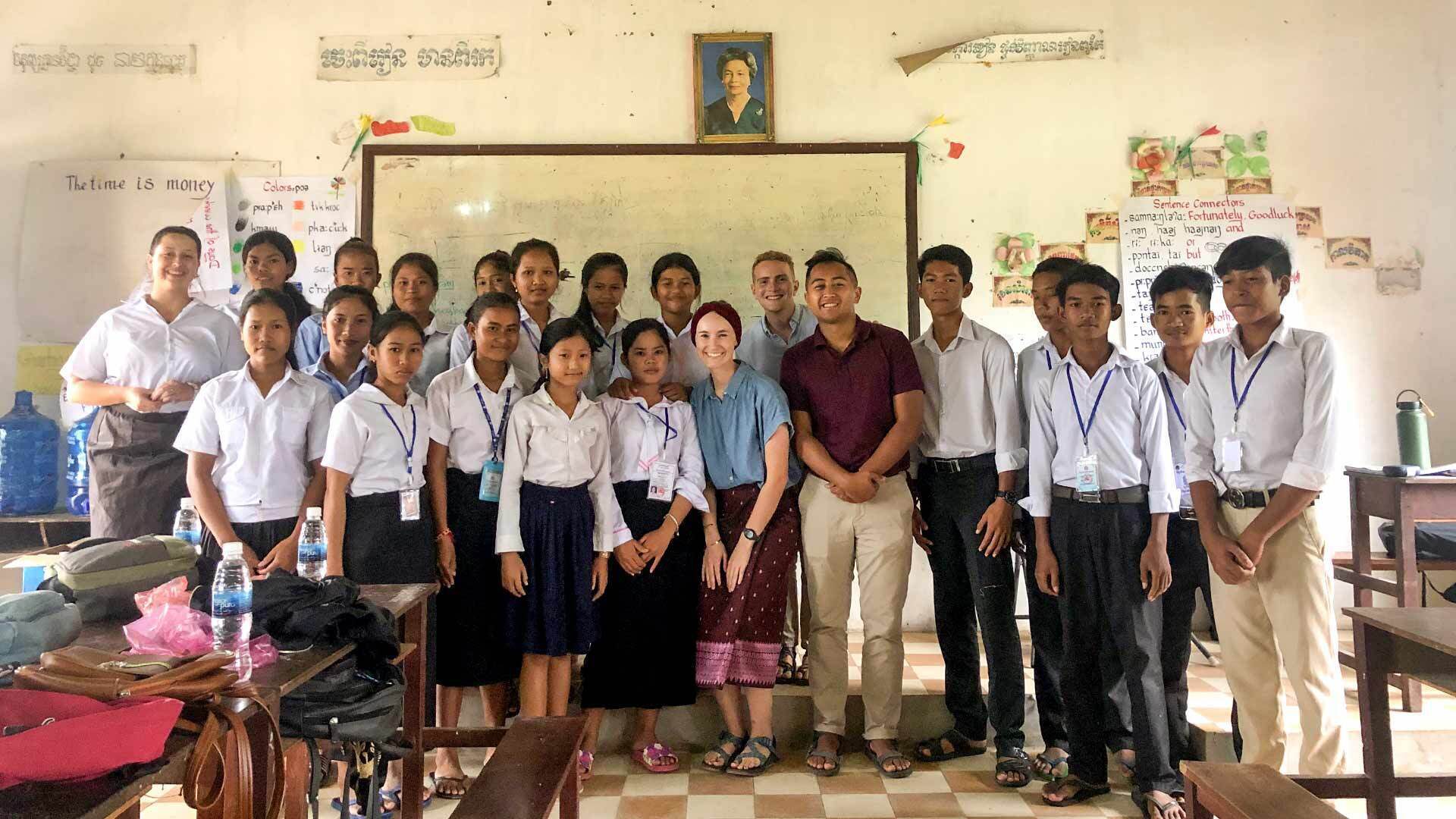- March 02, 2022
- By Kelly Blake
Kaitlyn Moberly’s two years of Peace Corps service in Nepal from 2015-17 included surviving a deadly 7.8 magnitude earthquake, eating a diet that often made her sick and experiencing the isolation of living in a remote community. Her work with local people aimed at improving the community’s food security and nutrition was fulfilling, but not what she expected.
“Peace Corps is always harder than you think it is going to be. It is harder mentally and physically than anyone can prepare you for,” Moberly ’13, MPH ’20 admits—but she also credits the experience with helping to define her career path in global public health, bolster her self-confidence and people skills and form lasting friendships.
The Peace Corps Prep undergraduate certificate program, now available to all University of Maryland students, is designed to help students gain a competitive edge in the challenging application process and find out whether they have what it takes to succeed in challenging and unfamiliar environments if they’re accepted. For years, UMD has been among the leading university producers of Peace Corps volunteers, rising to fourth in the nation in the most recent tally.
Through coursework, hands-on experiences and professional development activities, students fulfill the minimum requirements for the Peace Corps application before graduating and strengthen their resumes and build skills for other cross-cultural and international service and professional opportunities.
Made possible through a partnership between the Peace Corps, the School of Public Health's Global Health Initiative and the Department of Behavioral and Community Health, it accepts students for a fall or spring start and requires training and experience in a specific work sector—education, health, environment, agriculture, youth in development or community economic development. The program also includes courses to build foreign language skills, intercultural competence and leadership capacity.
“Through this program, our diverse UMD students can explore opportunities and prepare to make a difference in addressing the world’s grand challenges through the Peace Corps,” said Tracy Zeeger, clinical associate professor in the Department of Behavioral and Community Health and Peace Corps Prep coordinator.
Founded in 1961 by President John F. Kennedy, the Peace Corps has engaged more than 240,000 “motivated changemakers” to date who have partnered with communities across the globe to develop sustainable solutions to hunger, HIV/AIDS, environmental protection and access to education.
Before the global coronavirus pandemic limited global travel and exchange, more than 7,000 Peace Corps volunteers were actively working in 60-plus countries, and as the world emerges from the worst of the pandemic, the need for international development workers is expected to surge.
“As we reckon with the ongoing impacts of the global pandemic, unjust wars and the displacement they cause and the harms from worsening climate change, we need courageous and resilient problem solvers who are willing to serve and sacrifice for the good of our planet,” said Boris Lushniak, M.D., dean of the School of Public Health. “Peace Corps volunteers and others willing to take on challenging global issues through service are the heroes we need right now.”
Public health science major Jennifer Boguifo ’22, who grew up as a bilingual English and French speaker with parents from the Ivory Coast, is one of the first students to participate in the UMD Peace Corps Prep program.
“I want to do the Peace Corps because I want to use my skills to help people. I’m interested in health promotion in Africa,” she said. “I want to build upon their culture and enhance the resources that are already in those communities to better the community’s physical, sexual and mental health.”
The application period for the next cohort of UMD’s Peace Corps Prep program is open through March 15. Register to attend a virtual information session from 5-6 p.m. today.
Topics
Campus & CommunityUnits
School of Public Health